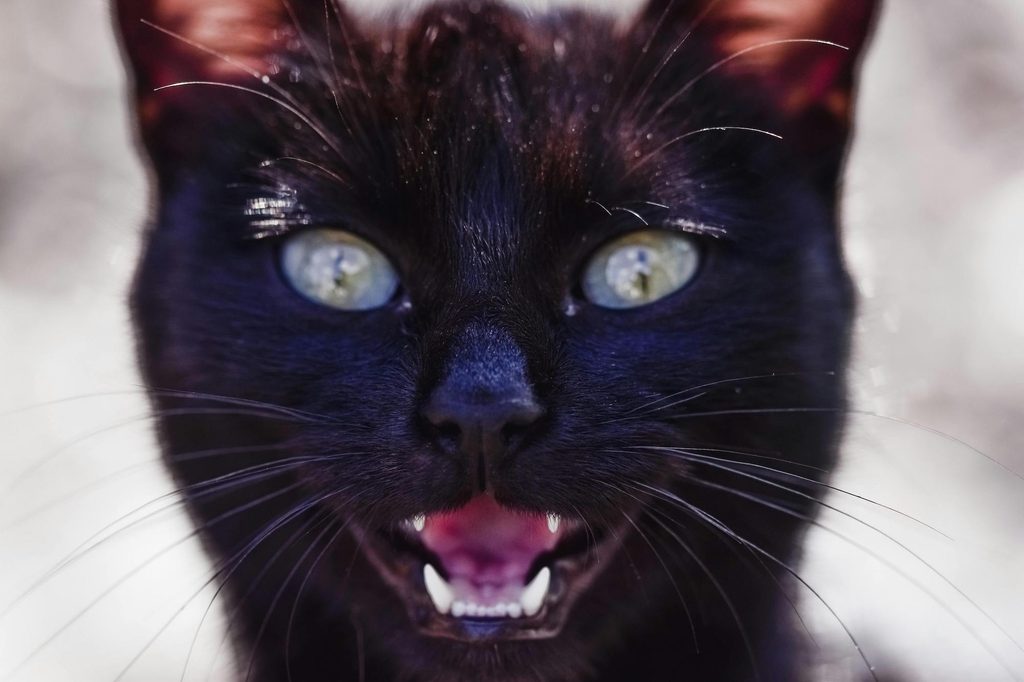
Think of the last time you smelled something foul. How did you react? If you’re truly made of steel, you may not have reacted at all, but for most people, it’s impossible not to flare your nostrils at least. You may have even made a face! All of these reactions are perfectly natural, though humans aren’t the only species that reacts to smells, both good and bad. Even your cuddly cat sniffs out the world around them sometimes,
If you’ve ever noticed your cat reacting to a smell, you’re not alone. Some folks have even noticed their cat opening their mouth — and even sticking out their tongue — while smelling, but it’s not so clear what this means. Is this a reaction to a scent, or is it just a way to get an extra thorough sniff? Whatever it may be, we’re here to find out.
Needless to say, you’re not alone if you’re wondering, “Why do cats open their mouths when they smell?” We’ve scoured trusted sources to find out, and this is what we know.
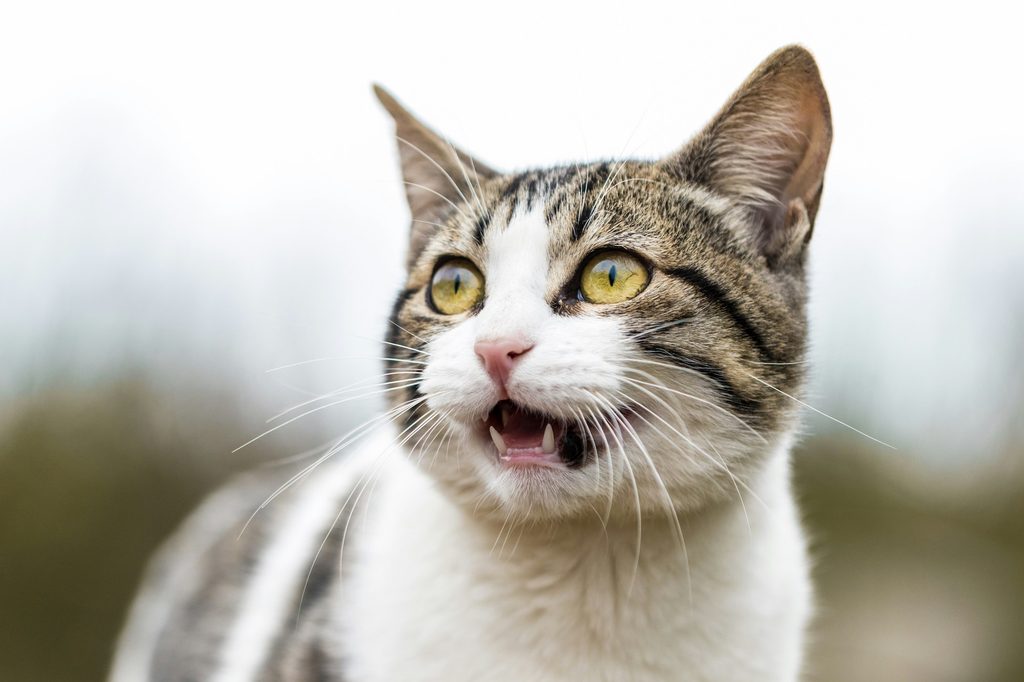
Why do cats open their mouths when they smell?
Watching your curious cat open their mouth in a kind of sneer while they get a good sniff of something can raise a lot of questions — it’s understandable. When people do this, it’s usually a response to an unpleasant smell, but when cats do this, they’re actually trying to get a better understanding of the scent in the air.
This is called the Flehmen response. Many cats involuntarily have this response when exposed to certain intriguing scents, though cats aren’t the only species that do this. Big cat species like lions and tigers do this, too, according to the animal experts at PetMD, as do horses, sheep, goats, and even dogs. Rhinos, llamas, giraffes, and other exotic animals have been seen performing this behavior, too.
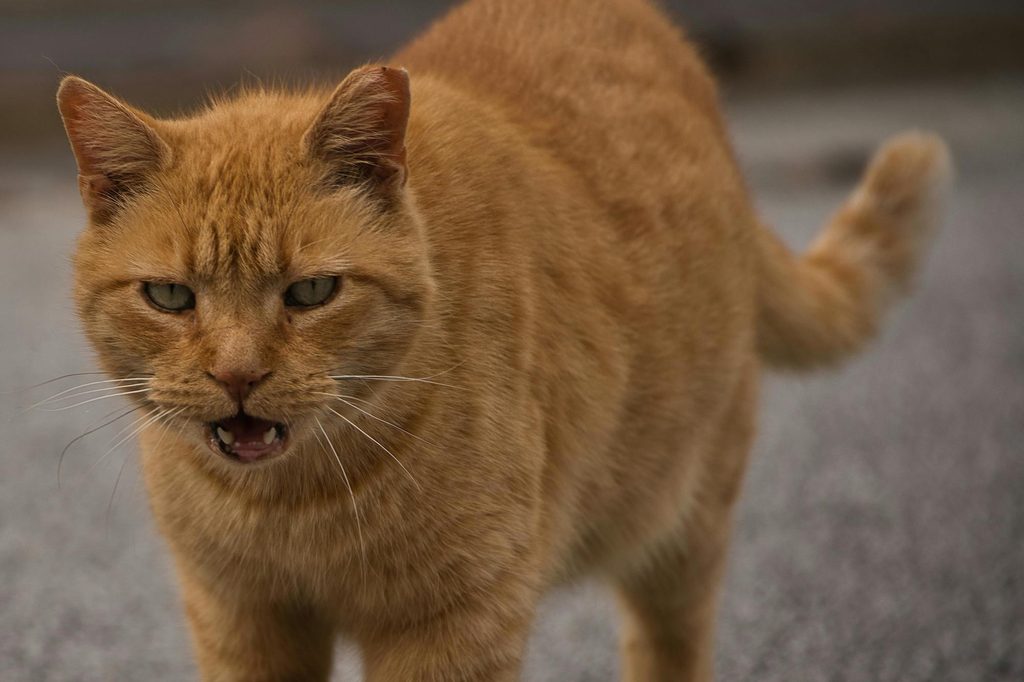
What is the Flehmen response?
Although it seems like a cat opens their mouth as part of a facial expression, it actually has a physical purpose. Cats have an organ between the nasal cavity and the roof of the mouth called the vomeronasal organ, or Jacobson’s organ, which processes the hormones and pheromones contained within a scent. Veterinarian Krista Seraydar describes this process as “a combination of taste and smell.” Cats access this response by letting air — and its scent — pass through the mouth and into the opening of the Jacobson’s organ. So that’s why your cat is sitting next to that stinky sock with their mouth hanging open.
You might see your feline friend curling their upper lip, extending their neck, and holding their head high in the air. They may even bare their front teeth. In most cases, a cat may stay in this mouth-open position for a few seconds while they process the smell, but don’t be surprised if your kitty takes a little bit longer sometimes. They may appear to be panting, sneering, or even sneezing, but rest assured, this is all perfectly normal.
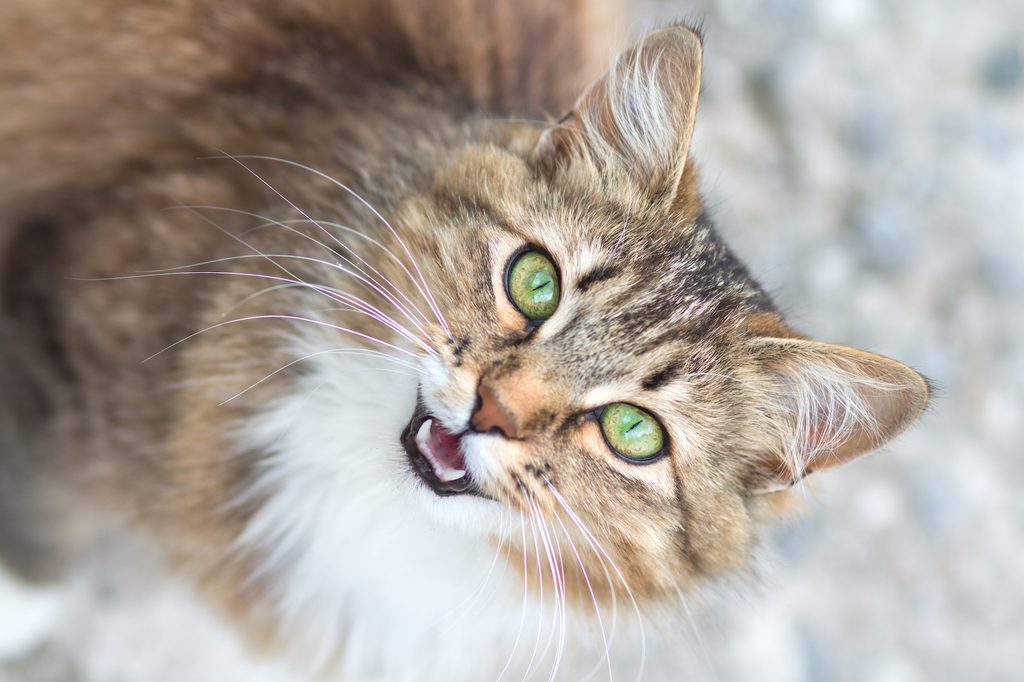
Why do cats react with the Flehmen response?
Although it may seem like cats choose random times to process their surroundings’ scents and pheromones, the simple truth is that some scents just don’t trigger this response. According to Dr. Seraydar, the most common triggers of the Flehmen response in domestic cats include:
- Urine
- Dirty laundry
- Anal gland secretions
- Pheromones from other cats
- New scents
- Anything intriguing
While this is typically used among male cats to detect females in heat, cats of any gender can use this response to explore any scent. Maybe they’re trying to get a good whiff of your friend’s cat whose scent is on your pants, or maybe they won’t leave your suitcase alone after traveling somewhere new. Your kitty could be exploring just about any scent.
And just to be clear, their facial expressions don’t mean that your cat finds these scents stinky or gross. That’s just the way their face moves to let the air into the Jacobson’s gland. So there’s no need to be offended if your kitty seems to sneer at you after giving you a sniff, we promise.
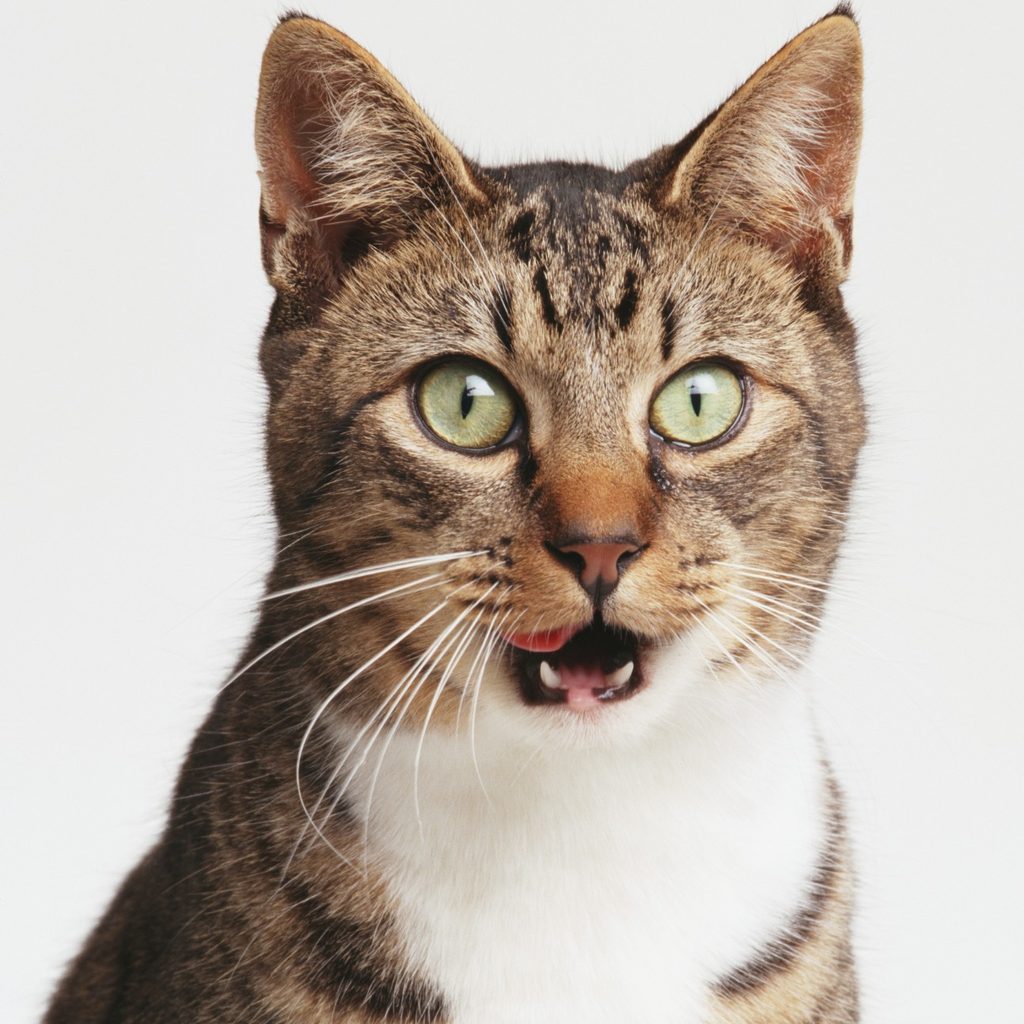
When your cat’s open mouth may be a problem
Although the Flehmen response is totally normal among felines, there are times when a cat’s open mouth could actually be an indicator of a problem. When smelling, a cat’s mouth will stay open for a few seconds, but if their mouth stays open for a long time, keep an eye on your pet. If you notice anything like erratic breathing or panting, something may be going on.
As Greencross Vets reminds readers, cats only pant when they are very hot, very stressed, or fighting an illness. Some amount of open-mouth breathing is normal when a feline is exercising or has just been outside in warm weather, for example, but continuous feline panting is worth a closer look. Greencross Vets recommends checking your kitty’s gums for a healthy pink color. If you see pale, white, gray, or even blue gums, take your furry friend to the vet immediately.
For the most part, a cat smelling with their mouth open is completely normal. In fact, it’s rather helpful, too. Felines can learn a lot from the pheromones and hormones hidden within a scent, so don’t be concerned if you see your cat making a “stinky” face every now and again.




